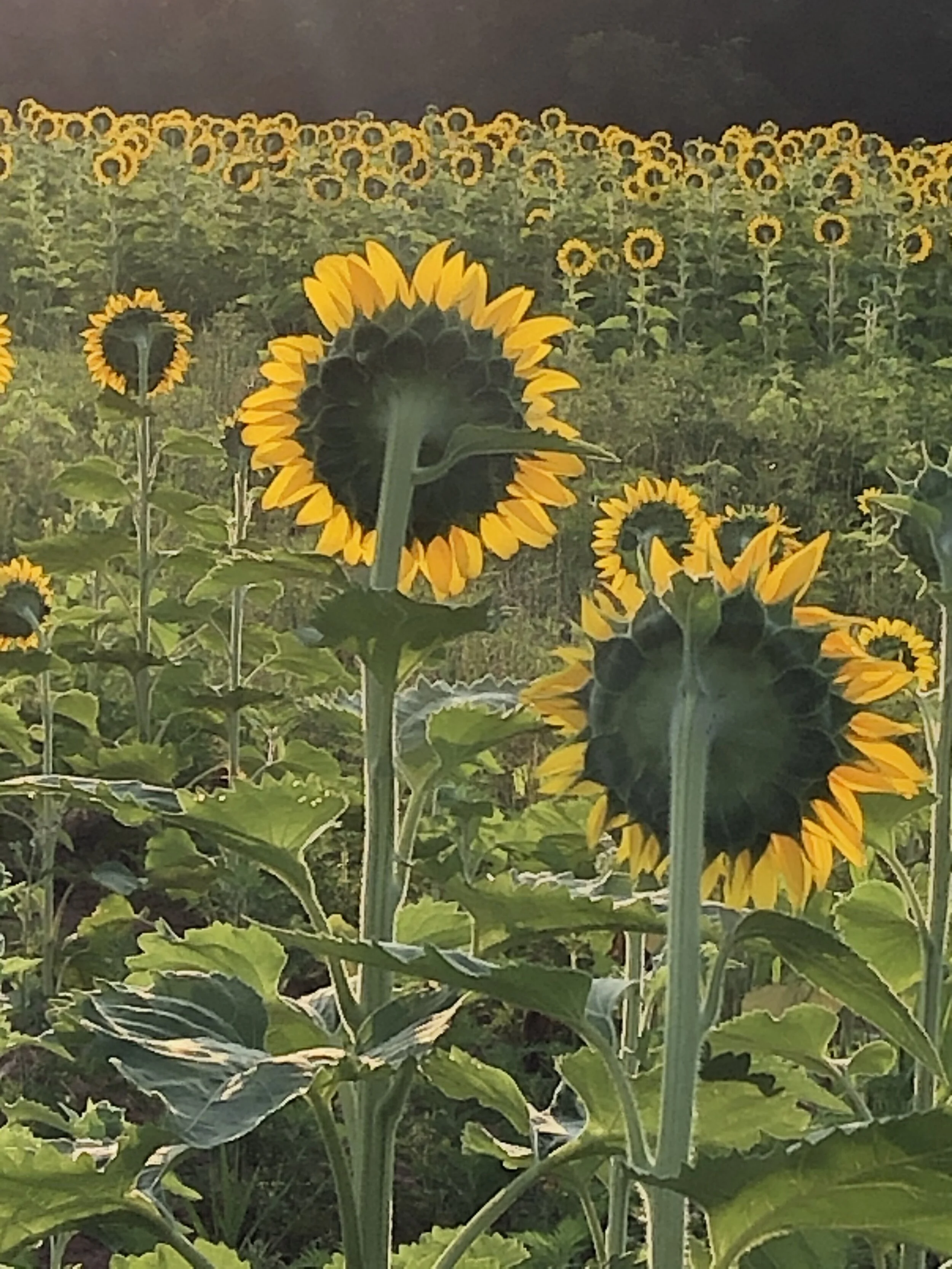A few weeks ago, when a member of our community asked that we explore the topic of grief, I felt grateful. Until recently, my experience with grief tended to be direct, tsunami-like events that flattened me. Then, with practice and time, came healing. Dry land on which I could find my feet. Gratitude for the presence of that person - which continued long after they had died.
With all that is happening in this world and in this country, I’m feeling grief more frequently, but the nature of that grief is different. As a privileged person, cocooned on a beautiful farm with work that connects me with nature, these crises have affected me indirectly - largely through the suffering of others. I recently learned the term “second hand trauma” that describes this, in part. Rather than a single tsunami, this can feel like an unrelenting set of waves, towering and fathomless, pounding other people, who have no chance to find dry land.
As Roshi Joan Halifax described in a recent episode of Making Visible, “The biggest crisis that we’re facing is a crisis of the heart and of the mind, and it goes right to the core of how we live as social beings, how we deal with fear, how we deal with loss and how we die… What’s happening right now is revealing serious issues that have been there forever. Issues of inequality that are related to race and to poverty, and in a way, there’s a loss of innocence with this…
...It takes enormous courage, but it also takes a lot of care and connection to face the magnitude of losses that we’re experiencing.”
Roshi’s words caused me to pause and reflect on what, at a very practical level, helps me to be with this new type of grief in ways that are grounding, healing and empowering. What kind of care and connection help? I offer you some practices that have nourished me in recent weeks, and I look forward to learning what helps you when we gather on Monday night.
1. The teachings of Thay and other beloved teachers. Here is a two minute (really!) video by Thich Nhat Hanh about how we can embrace our pain and sorrow. In addition, I keep returning to passages from The Heart of the Buddha’s Teaching, such as this one:
“When we look at the ocean, we see that each wave has a beginning and an end. A wave can be compared with other waves, and we can call it more or less beautiful, higher or lower, longer lasting, or less long lasting. But if we look more deeply, we see that a wave is made of water. While living the life of a wave, it also lives the life of water. It would be sad if the wave did not know that it is water. It would think, “Someday I will have to die. This period of time is my lifespan, and when I arrive at the shore, I will return to nonbeing.” These notions will cause the wave fear and anguish...
We become arrogant when things go well, and we become afraid of falling, of being low or inadequate. But these are relative ideas, and when they end, a feeling of completeness or satisfaction arises. Liberation is the ability to go from the world of signs to the world of true nature. We need the relative world of the wave, but we also need to touch the water, the ground of our being, to have real peace and joy.”
2. Learning about the work of incredible activists that have done/are doing meaningful work around the globe. This quote is one of my favorites: “If you have come here to help me, you are wasting your time. But if you have come because your liberation is bound up with mine, then let us work together.” (Attribution: a collective Aboriginal Activist’s Group, Queensland, Australia).
3. The practice of “watering wholesome seeds” and touching joy. At this moment, this is what I’m doing: being with those I love (including those who are “dead”, remembering and savoring the gifts of their presence), immersing myself in nature, floating in water and looking at the sky, enjoying animals, music, laughter, dancing, harvesting from the garden and meaningful work.
For me, being with grief is, and will continue to be, an “unfinished art”. Hence my desire to learn from you: what type of care and connection help you to be your grief? What do you do and how do you do it? When you do, what happens?
On Monday, I invite you to share from your heart, and I look forward to us learning from each other.
Warmly,
Marie

